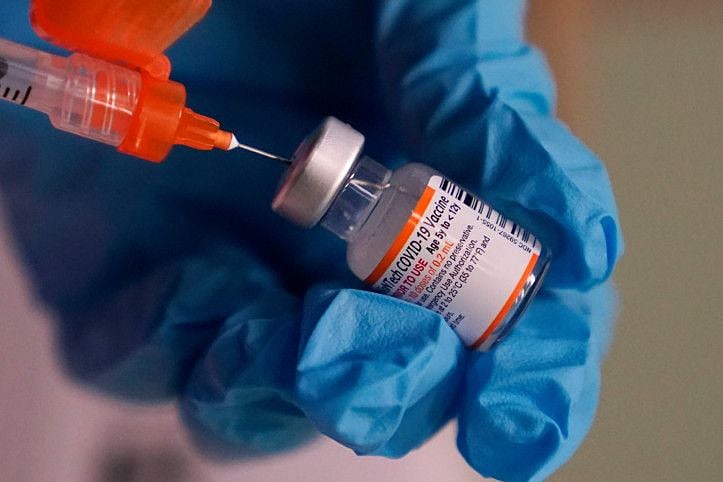COVID-19: Pfizer and BioNTech begin testing Omicron-specific vaccine on adults
Trial will test booster scenarios in 1,420 healthy adults between ages of 18 and 55

Washington: Pfizer and its German partner, BioNTech, have begun testing a vaccine tailored to battle the Omicron variant of the COVID-19, the companies announced Tuesday.
The highly anticipated trial will test several booster scenarios in 1,420 healthy adults between the ages of 18 and 55 to determine the best vaccination strategy moving forward.
The questions of when and whether another booster will be needed after a third shot, and what kind, remain a scientific uncertainty and source of anxiety for people hoping for the highest levels of protection. Data has clearly shown that a third shot provides a strong shield against severe illness and hospitalization, but it remains unclear how long that will hold up.
“We may need to boost again. That’s entirely conceivable,” Anthony Fauci, director of the National Institute of Allergy and Infectious Diseases, said on ABC’s “This Week” on Sunday. “Before we make that decision about yet again another boost, we want to determine clearly what the durability of protection is of that regular boost.”
The Pfizer and BioNTech trial will consist of three groups of people, a reflection of highly varied levels of immunity among the population — differences that did not exist at the dawn of the pandemic. The three groups will have different vaccination histories, from completely unvaccinated to fully boosted with a third shot, and will receive different combinations of shots.
The first group includes 615 people who received two doses of the Pfizer-BioNTech vaccine and will get one or two doses of the Omicron-specific booster shot.
The second group consists of 600 people who received the standard series of two shots and were boosted with the Pfizer-BioNTech vaccine. They will receive a fourth shot of the original vaccine or the Omicron-specific shot.
The third group will include 205 people who have not been vaccinated. They will receive three doses of the Omicron-specific shot.
The companies will collect data on the participants’ immune responses to the different vaccination regimens to determine which one provides the most protection. Results are expected in the first half of the year, and Pfizer’s chief executive, Albert Bourla, has predicted that an omicron-specific shot could be ready by March.
Immune response
“In the wake of Omicron, we are proactively investigating and manufacturing at risk an Omicron-based vaccine should it be needed, but we of course need to have results and discussions with health authorities as well as approvals before it would be deployed,” Pfizer spokeswoman Jerica Pitts said in an email.
Data from hospitals has shown that the third booster shot is critical to preventing severe outcomes during the Omicron surge, and laboratory studies have helped explain why. A third shot of the original vaccine increases virus-fighting antibodies and, crucially, appears to broaden the immune response and make virus-blocking antibodies better at recognizing and thwarting the Omicron variant.
“While current research and real-world data show that boosters continue to provide a high level of protection against severe disease and hospitalisation with Omicron, we recognize the need to be prepared in the event this protection wanes over time and to potentially help address Omicron and new variants in the future,” Kathrin Jansen, head of vaccine research and development at Pfizer, said in a statement.
The companies plan to launch additional trials testing vaccines in older adults by March. Those tests will include a higher dose of the original shot, a higher dose of the Omicron vaccine and a combination shot.
Pfizer and BioNTech plan to manufacture 4 billion vaccine doses in 2022, whether they are the original formula or a new version adapted to fight the Omicron variant.
Sign up for the Daily Briefing
Get the latest news and updates straight to your inbox
Network Links
GN StoreDownload our app
© Al Nisr Publishing LLC 2026. All rights reserved.